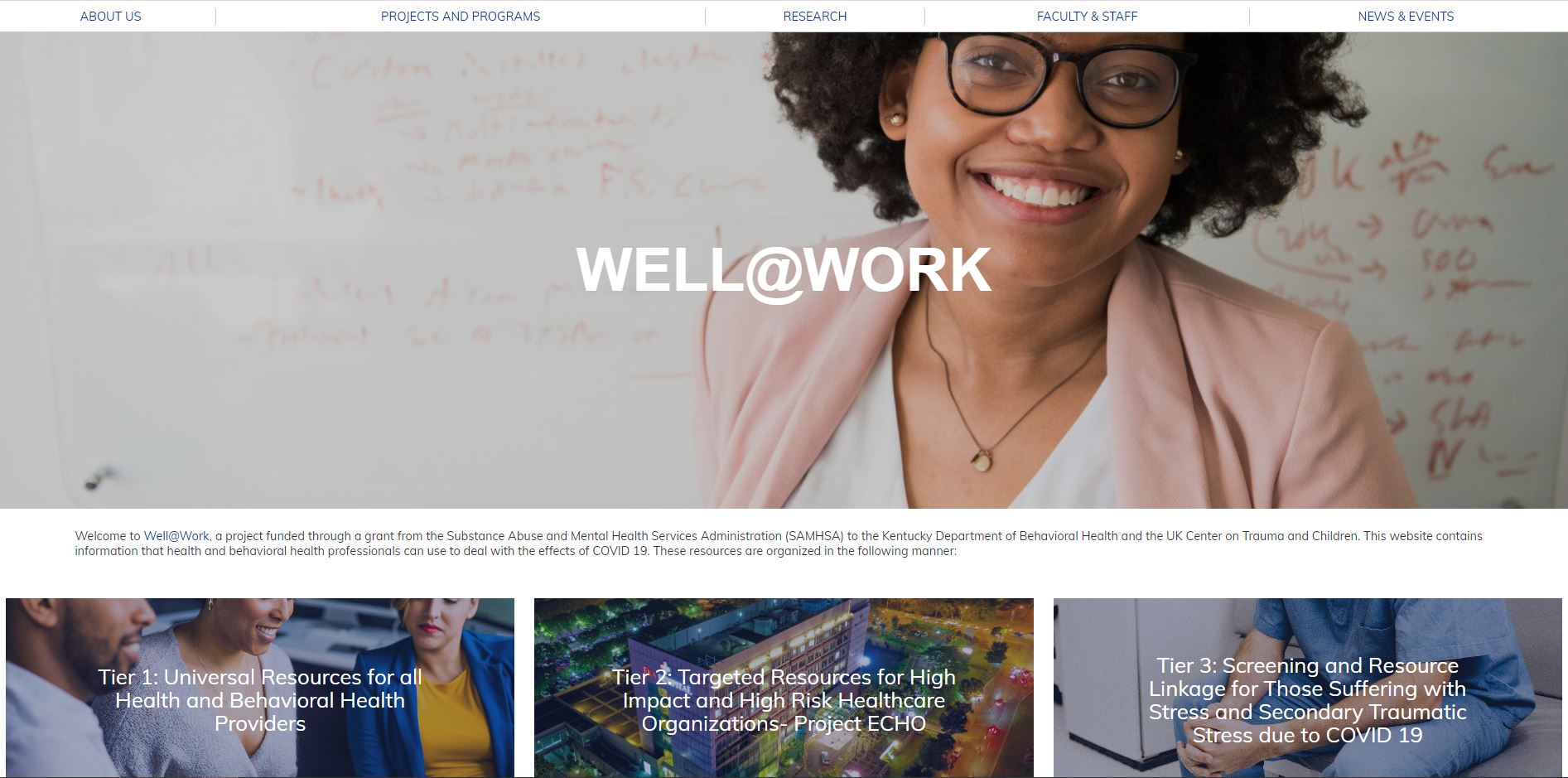Well@Work Builds Resiliency for Employees Dealing with COVID-19 Related Trauma
Through the course of their profession, health care workers will face a variety of direct and indirect trauma, from hearing traumatic stories or witnessing effects of trauma on others to coping with death on the job. COVID-19 has only intensified these effects.
In response to the growing needs resulting from the pandemic, a project designed by the University of Kentucky Center on Trauma and Children (UK CTAC) is providing assistance and support for individuals and organizations dealing with the toll of COVID-19 on workplace well-being.
Well@Work is coordinated by the UK CTAC and Kentucky Department of Behavioral Health. The project is funded through a disaster mental health grant from the Substance Abuse and Mental Health Services Administration (SAMHSA).
“When this COVID-response grant came to our attention, we wanted to take some of the knowledge generated from our research on crisis and disaster response and bring those successes and lessons learned to the COVID context,” said Ginny Sprang, PhD, professor of psychiatry and executive director of the UK CTAC.
Dr. Sprang has worked for more than two decades as a researcher, policy maker, and clinical advisor specializing in trauma care. Her wealth of expertise has helped bring numerous grants and projects to UK, including a recent category 2 SAMHSA grant that helped establish the Secondary Traumatic Stress Innovations and Solutions Center to develop and test interventions for organizations serving those with traumatic stress conditions.
Dr. Sprang said Well@Work is a culmination of the work the UK CTAC has completed over the years to alleviate the effects of secondary trauma.
The Well@Work project is split into three tiers to tackle multiple levels of trauma and need. The first focuses on normalizing responses to traumatic environments through assistance and resources for health care workers, both in the medical and behavioral health fields. These include trainings, webinars, tips, and an informational podcast that has been shared widely by health care professionals across the U.S.
“We want people to see these reactions as an occupational hazard and not as a personal failing,” Dr. Sprang said.
The second tier implements assessment strategies for intensive intervention in high-impact and high-risk health care organizations, including those that have lost employees to COVID-19 or have had many patients die from the virus. This tier uses the Project ECHO framework and telementoring to address complex conditions related to workplace wellness and resiliency.
The third tier offers screenings for those suffering from COVID-19 stress, secondary traumatic stress, burnout, and moral distress. People who complete the screenings are linked to appropriate resources based on the level of stress they’re facing. (Those screenings are available here.)
Well@Work team members have been closely following the trends related to COVID-19 and continue to investigate how the pandemic impacts families, especially for kids already at very high risk of trauma.
“There are these ripple effects,” Dr. Sprang said. “The longer COVID-19 goes on, the more nuances we’re seeing in the ways families, systems, and professionals are responding to and coping with these conditions.”
She said that as the pandemic evolves, so will her team’s strategies.
“In the beginning our focus was a lot on education and putting systems in place,” she said. “As the project and pandemic conditions evolve, we’re focusing more on transitioning back to work, leadership fatigue, and other traditional stressors.”
For more information about Well@Work, click here.
